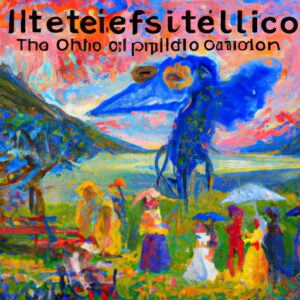What’s the meaning of non solo…ma anche in Italian?
This sentence is pretty easy to remember because, unlike many other cases, it’s a literal translation: in English we say not only… but also.
Like in Italian, this construction creates some sort of parallelism: not only…but also.
In fact, we use this two-part expression to:
- create emphasis
- give unexpected information
- add balance to what we’re saying
The second item in the sentence is usually more surprising than the first one, and this creates some kind of “mystery”, as you can see in the example below:
Mi ha detto non solo che mi voleva bene ma anche che era innamorato di me.
He said not only that he cared for me but also that he was in love with me.
How to structure non solo…ma anche?
There is only one important rule concerning this structure.
Since this construction is all about parallelism, the words following both parts (non solo and ma anche) should belong to the same parts of speech.
For example, if there’s a verb after non solo, then after ma anche there should be a verb too.
If we use different parts of speech after each part, the sentence will look imbalanced and odd.
It’s the same in English. If you’re not too convinced, look at the following examples:
- She’s not only nice but also has a great sense of humor.
- She’s not only nice but also funny.
Both sentences mean the same thing. However, the first sentence is imbalanced because after “not only” there is an adjective (nice), and after “but also” there is a verb (has).
Let’s have a look at some examples in Italian:
Non vendono solo libri ma anche giornali.
They sell not only books but also newspapers.
In this case, the sentence is balanced because both after non solo and ma anche there are the nouns libri and giornali.
Also, as you can see in the example above, sometimes the words are split but the meaning is still the same.
We could have said:Vendono non solo libri ma anche giornali.
Non solo…ma anche: examples
Let’s look at some more examples:
È triste non solo per voi ma anche per noi.
It’s sad not only for you but also for us.
Fare sport fa bene non solo agli adulti ma anche ai bambini.
Doing sport is good not only for adults but also for children.
Ci sono conseguenze non solo per la salute fisica, ma anche per la salute mentale.
There are consequences not only for the physical health but also for the mental health.
Ti consiglio non solo di studiare ma anche di fare qualche esercizio.
I recommend not only studying but also doing some exercises.
Non deve solo chiedere scusa ma deve anche pagare una multa.
He not only has to apologize but also has to pay a fine.
Non bisogna solo lavorare ma bisogna anche farlo bene.
We not only have to work but also do it well.










One Response
Thanks for sharing this lesson! It’s really helpful for improving my Italian grammar skills. Can’t wait to learn more!